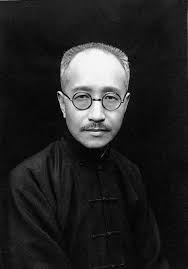Chiang Hai-ch'eng ( 1910—), known as Ai Ch'ing, poet. As a prominent literary figure committed to the doctrines of Mao Tse-tung, he held official posts at Peking from 1949 to 1958, when he was censured as a rightist. Iwu, Chinhua hsien, Chekiang province, was the birthplace of Ai Ch'ing. His family owned much land in […]








